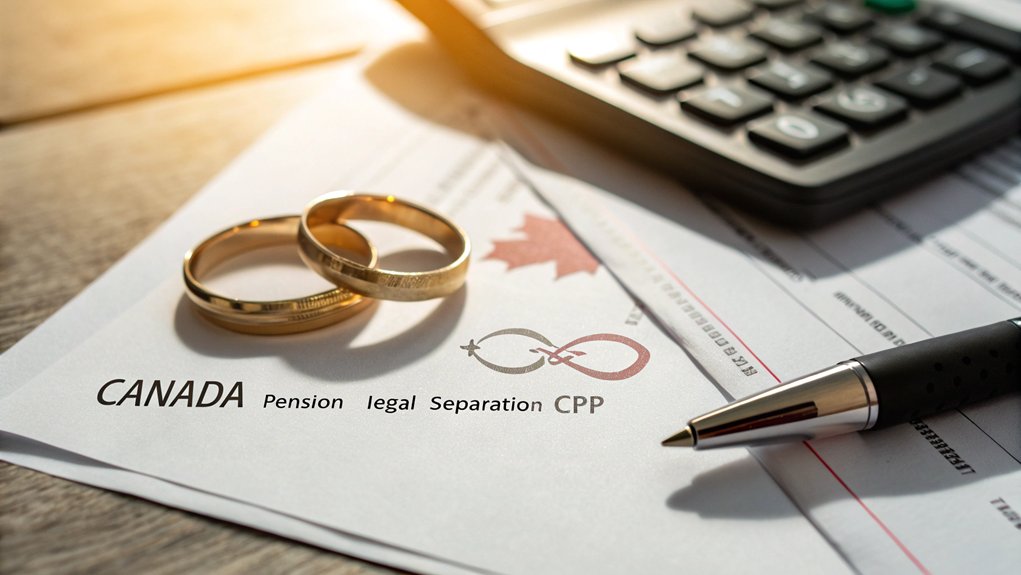Who Is the Beneficiary of a Pension Plan and Why Does It Matter?
Why naming a pension beneficiary could be more powerful than your will in determining who inherits your retirement wealth.
A pension plan beneficiary is the person, organization, or entity designated to receive retirement benefits when the plan participant dies, typically including primary beneficiaries like spouses or children, and contingent beneficiaries who serve as backups. This designation matters because it guarantees accumulated pension assets transfer directly to intended recipients while bypassing probate complications, overrides will instructions, and prevents financial hardship for dependents through proper estate planning that necessitates regular updates following major life events.

Peace of mind regarding the financial security of loved ones after death represents one of the most fundamental concerns for pension plan participants, making the proper designation of beneficiaries a critical component of extensive retirement and estate planning. A beneficiary constitutes any person or entity legally designated to receive assets, death benefits, contributions, and accrued interest from a pension plan upon the participant’s death, effectively overriding instructions contained within wills when properly named.
Proper beneficiary designation serves as the cornerstone of retirement planning, ensuring pension assets reach intended recipients while bypassing probate complications.
Understanding the various types of beneficiaries enables pension holders to structure their designations strategically, ensuring safeguarded protection for their dependents. Primary beneficiaries, typically spouses or immediate family members, receive benefits first, while contingent beneficiaries serve as backup recipients if primary beneficiaries are deceased, unable, or unwilling to claim benefits. Modifiable beneficiaries can be changed without consent during the participant’s lifetime, whereas fixed beneficiaries require permission for modifications, often utilized in divorce settlements or special legal circumstances.
The importance of accurate beneficiary designation cannot be overstated, as improper or outdated designations frequently result in unintended recipients receiving benefits, legal complications, and financial hardship for dependents. Life events such as marriage, divorce, or births necessitate immediate beneficiary updates to prevent complications, while proper designations enable pension assets to bypass probate proceedings, enabling faster distribution to survivors. Beneficiaries should be aware that they may face tax consequences depending on their state of residence when receiving pension benefits.
Pension plans offer flexible designation methods, allowing participants to name individuals, charitable organizations, trusts, or estates as beneficiaries, subject to plan rules and state regulations. Multiple primary beneficiaries can receive specified percentage shares, with distribution occurring through per stirpes methods, where shares pass to descendants of deceased beneficiaries, or per capita arrangements, providing equal shares to surviving beneficiaries. Participants can typically review and update their beneficiary designations through online account management, providing convenient access to make necessary changes.
State laws may impose specific restrictions, including spousal consent requirements for beneficiary changes, while some plans distinguish eligible beneficiaries with different payout rules regarding survivor benefits or minimum distribution periods. Former spouses may also be entitled to pension benefits through credit splitting arrangements established during divorce proceedings, which can affect how benefits are distributed upon death. Naming minors or disabled individuals as beneficiaries may require special considerations, such as trust establishment or guardianship arrangements, to ensure proper asset management and protection. Ultimately, thoughtful beneficiary designation serves as a cornerstone of comprehensive estate planning, preserving family financial stability and ensuring pension assets reach their intended recipients efficiently.
Frequently Asked Questions
Can I Change My Pension Beneficiary After Retirement?
Whether retirees can change pension beneficiaries depends on their specific plan rules and selected payment options. Some plans allow beneficiary changes through official designation forms, while others, particularly joint-and-survivor annuities, prohibit modifications once payments begin.
Married retirees typically need spousal consent to designate alternative beneficiaries, and certain payment options may limit changes or restrict eligible beneficiaries to qualifying joint annuitants only.
What Happens if My Beneficiary Dies Before Me?
If a designated beneficiary dies before the pension participant, benefits typically transfer to contingent beneficiaries named on the designation form, or if none exist, to the participant’s estate unless plan provisions specify otherwise.
This situation makes benefits subject to probate proceedings, potentially delaying distributions and increasing administrative costs, which emphasizes the importance of maintaining updated beneficiary designations with both primary and contingent beneficiaries.
Do I Need a Lawyer to Designate a Pension Beneficiary?
Most pension participants can designate beneficiaries without legal assistance using employer-provided forms, which include clear instructions and required documentation. However, legal counsel becomes advisable when establishing trusts as beneficiaries, traversing intricate family situations involving multiple marriages, addressing significant tax ramifications, or when beneficiary designations intersect with thorough estate planning strategies that require professional coordination and specialized knowledge.
Can My Ex-Spouse Claim My Pension Benefits After Divorce?
An ex-spouse can claim pension benefits after divorce only if a Qualified Domestic Relations Order (QDRO) was properly filed and approved by the court, which legally allocates a portion of pension benefits earned during the marriage to the former spouse, though state laws vary regarding timing and claim procedures for delayed QDRO implementations.
Are Pension Benefits Subject to Estate Taxes for Beneficiaries?
Pension benefits are included in the decedent’s gross estate for federal estate tax purposes, potentially triggering estate taxes if the total estate exceeds applicable exemption thresholds.
However, beneficiaries can claim deductions under IRC Section 691(c) for estate taxes paid on inherited pension benefits, reducing their income tax burden when receiving distributions from these retirement accounts.
What’s next?
The information provided is based on current laws, regulations and other rules applicable to Canadian residents. It is accurate to the best of our knowledge as of the date of publication. Rules and their interpretation may change, affecting the accuracy of the information. The information provided is general in nature, and should not be relied upon as a substitute for advice in any specific situation. For specific situations, advice should be obtained from the appropriate legal, accounting, tax or other professional advisors. Full details of coverage, including limitations and exclusions that apply, are set out in the certificate of insurance provided on enrollment.
This article is meant to provide general information only. It’s not professional medical advice, or a substitute for that advice.
Saphira Financial Group does not provide legal, accounting, taxation, or other professional advice. Please seek advice from a qualified professional, including a thorough examination of your specific legal, accounting and tax situation.







